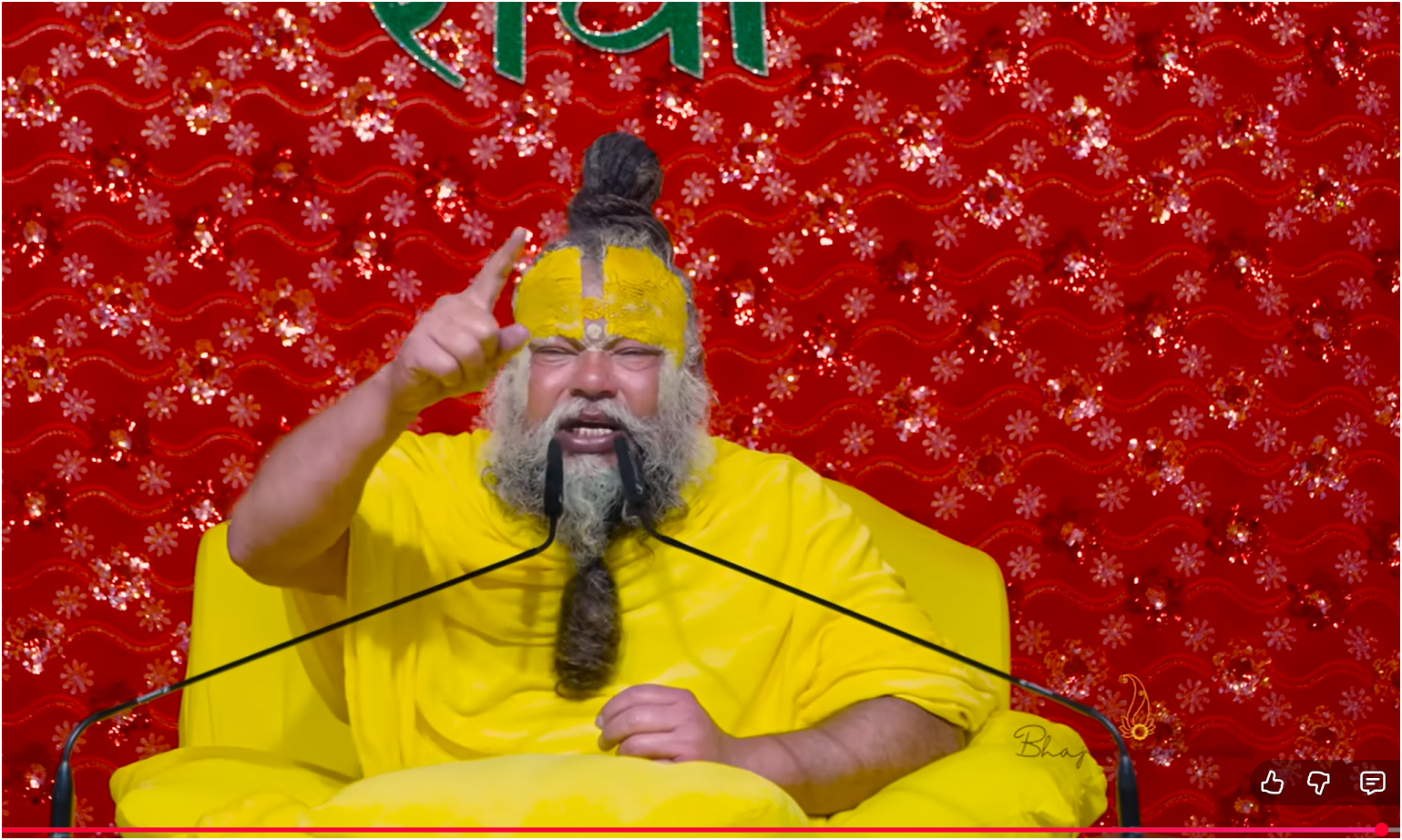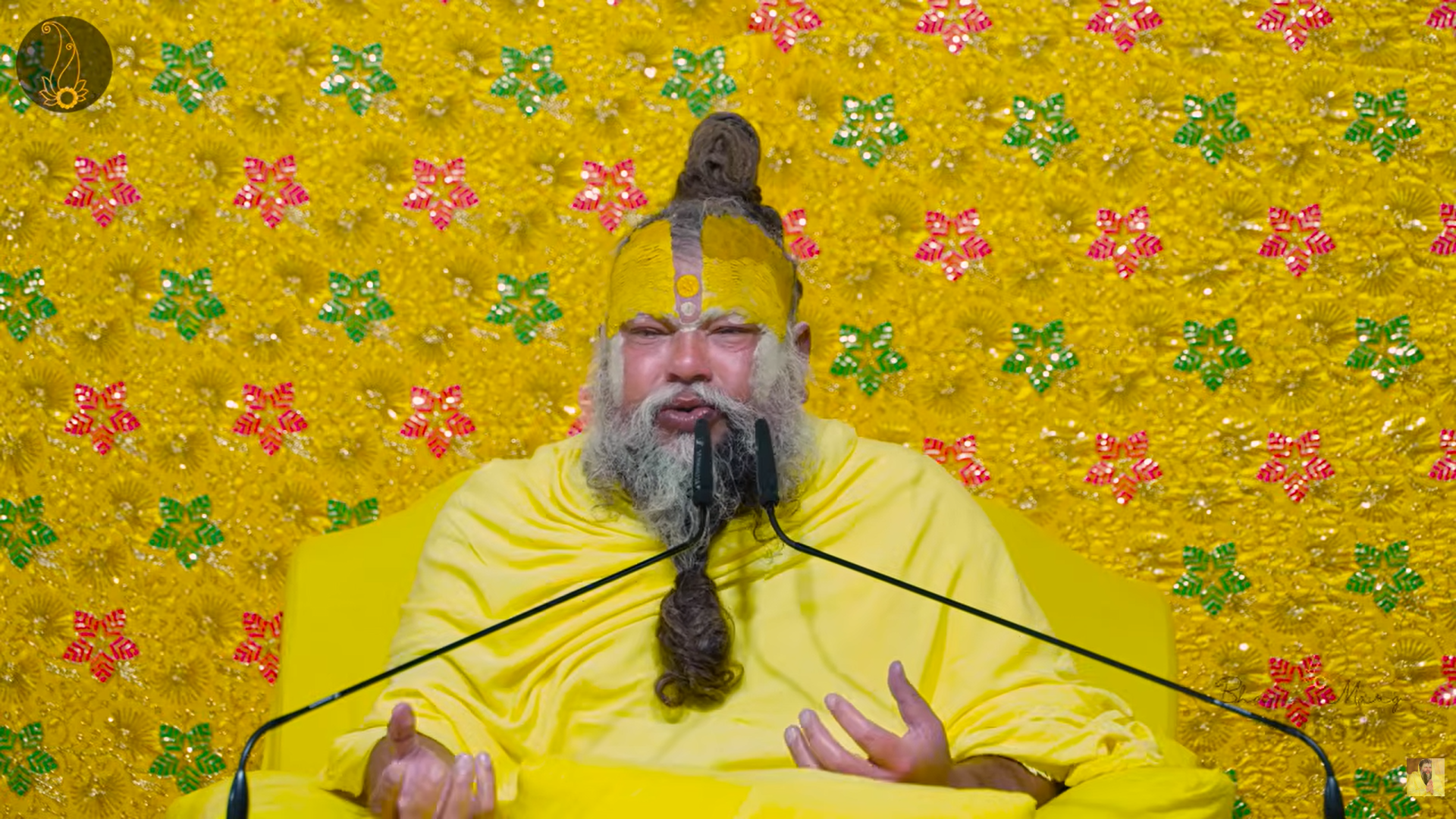
#ScriptureTradition #HinduCustoms #PremanandMaharaj #SpiritualDiscipline #VedicWisdom #HaircutMyth #SanatanDharma #SpiritualGrowth #GuruWisdom #ShastraRules
प्रश्न – “सारे दिन भगवान के हैं तो ऐसा क्यों कहते हैं कि इस दिन बाल मत काटो?”
परम पूज्य वृन्दावन रसिक संत श्री हित प्रेमानंद गोविंद शरण जी महाराज के वचन
नहीं, इसमें शास्त्र मर्यादा है। इसमें जो शास्त्र मर्यादा है, उसका हमें पालन करना चाहिए।
जैसे संध्या के समय मैथुन नहीं करना चाहिए, भोजन नहीं करना चाहिए, शयन नहीं करना चाहिए। उस समय जप करना चाहिए, भगवान का ध्यान करना चाहिए। तो शास्त्र जो आज्ञा करता है, अगर हम उसका पालन करेंगे तो हमारी उन्नति होगी।
अब जैसे, गुरु (गुरुवार) के दिन किसी भी स्थिति में बाल नहीं कटवाने। द्वादशी के दिन किसी भी स्थिति में तुलसी जी को नहीं छूना। तो जो शास्त्र मर्यादा बनाई गई है – उसमें हम क्यों नहीं कह सकते? क्योंकि ये ब्रह्म ऋषियों के द्वारा बनाई हुई मर्यादा है।
बुधवार को और शुक्रवार को आप बाल कटवा सकते हैं, लेकिन अन्य दिनों में कटवाने से आपके पुण्य क्षय होंगे। ब्रह्म ऋषियों ने जो मर्यादा बना रखी है, अगर हम उसी से चलते हैं तो हमें ज़्यादा लाभ मिलेगा।
अब रोज़ सुबह लोग बाल आदि, तो हम कहते हैं केवल बृहस्पतिवार को मत करवाओ। और ना मानो तो…गुरुवार का दिन परम पवित्र, गुरु के लिए है। उस दिन आप छोर कर्म ना करें, बिल्कुल निषेध है। नहीं तो उससे पुण्य नष्ट होते हैं, आयु नष्ट होती है, बुद्धि नष्ट होती है।अब अगर आप नहीं मानोगे, तो वैसे ही आपके आचरण होते चले जाएंगे, गिरते चले जाओगे।देखो, आप सब लोग यहां क्या देखने आए हो? हम आपको बता रहे हैं। आप यहां क्यों आए हो?हम दो बातें आपसे रखते हैं — आप क्या देखने आए हो और आप यहां क्यों आए हो?
तो आप यहां देखने आए हो साधुता – भगवान के भक्त का दर्शन, जो शास्त्र के अनुसार चलता है।आप आए हो अध्यात्म को पाने के लिए, आप आए हो सुख-शांति के लिए – आए हो कि नहीं?
अगर हम धर्म से ना चलते हो, तो आप हमारे दर्शन करने आओगे क्या?हम भी तो एक मनुष्य हैं, हम भी तो आप जैसे ही हैं।
अगर हमारे अंदर अध्यात्म न हो तो आप क्या सुनने आए हो?तो आप सोचो, उन्हीं ब्रह्म ऋषियों ने यह मर्यादा रखी।वैसे ही जब हम चलते हैं तो हमारे अंदर तेज, हमारे अंदर शांति, हमारे वचनों का प्रभाव, हमारे दर्शन मात्र से तुम्हें सुख मिलेगा।तो क्या वह आप नहीं बन सकते? आप विचार करो।तो जो शास्त्रों में लिखा है, उस पर हम क्यों “क्यों” नहीं लगाते? उसका हम आचरण करते हैं।जैसे डॉक्टर कहता है कि – “आपको यह नहीं खाना, यह नहीं खाना, यह नहीं…”
तो हम उनसे क्यों बोलते हैं? क्या दही नहीं खाना? अरे भाई, दही तो बहुत अच्छी चीज है – क्यों नहीं खाना?क्योंकि तुम्हारा रोग बढ़ जाएगा।
जब तुम ठीक हो जाओगे तब तुम सब कुछ कर सकते हो, लेकिन जब तक ठीक नहीं होते, तब तक तुम्हें दही नहीं खाना।ऐसा मना किया जाता है ना।जब तक हमारा अज्ञान नष्ट नहीं हो जाता, तब तक ये सब बातें – और अज्ञान नष्ट हो गया तो फिर कोई नियम नहीं।
फिर वह सबके ऊपर पहुँच जाता है।जब स्वस्थ हो गया तो खूब दही खाओ, क्या परेशानी है?
जब आप आत्मा स्वरूप में स्थित हो गए, देह भाव खत्म हो गया –तो बाल बने या बना रखा रहे, क्या फर्क पड़ता है?
तो हम अभी देहाभिमानी हैं, देह भाव से चलते हैं –तो हमें शास्त्र के नियमों का पालन करना चाहिए।
जो आज शास्त्र के नियमों का पालन नहीं करते हैं, वे गिरते चले जाते हैं।
अब ये शास्त्र आज्ञा करता है –
जिस दिन से गर्भ आ जाए, उस दिन से माता-पिता को ब्रह्मचर्य रहना चाहिए।क्यों? क्योंकि वही वीर्य शक्ति फिर उसके ऊपर जाएगी, तो उसके दिमाग पे, उसके अंगों पे, वह कुप्रभाव पैदा करेगी।
वह उसकी हानि पैदा करेगी और उसमें गलत संस्कार पड़ जाएंगे।कौन मानता है?
शास्त्र जो आज्ञा करता है, अगर उसके अनुसार चलो तो आज सब सुखी हो जाएं।पर शास्त्र की आज्ञा का कहाँ पालन हो रहा है?बोले, प्रात: काल उठना चाहिए — ब्रह्म मुहूर्त में उठकर के गुरुजन, माता-पिता के चरण छूने चाहिए।कौन मान रहा है?
प्रात: काल उठ के रघुनाथा, मात-पिता-गुरु नाव माथा – मातृ देवो भव, पितृ देवो भव, अतिथि देवो भव –कहाँ गया?
पहले लिखा होता था घरों में बड़े अक्षरों में – अतिथि देवो भव,अब लिखा होता – कुत्ते से सावधान। नहीं लिखा होता!तो हमारे जो शास्त्र कहते हैं, उस पे हम क्यों लगाने का अधिकार नहीं रखते,
हम उनका पालन करते हैं।क्यों “क्यों” लगाने का मतलब है – संशय करना,
और पालन करने का मतलब श्रद्धा करना।और श्रद्धावान लभते ज्ञानम्, श्रद्धावान ही ज्ञान को प्राप्त होता है,
श्रद्धावान ही आनंद को प्राप्त होता है, श्रद्धावान ही परम शांति को प्राप्त होता है।इसलिए हमें लगता है शास्त्रों की आज्ञा का पालन किया जाए, ना कि उसमें “क्यों” रखा जाए।बस, समझना है — हर भाव को समझना है।शास्त्र मर्यादा है।
जैसे देखो, कहते हैं हम सब एक हैं — हम भी कहते हैं सब एक हैं।अब एक पिता के दो पुत्र हैं, एक बड़ा है, एक छोटा है।
अब छोटा वाला बड़े के पैर छूता है, छूता है ना?अब यह मर्यादा है। शास्त्र मर्यादा है।
तो देखो कितना अच्छा लगता है – अगर छोटा वाला अकड़ के कर दे, कि जिस बाप से तुम पैदा उसी बाप से हम पैदा, क्या कमी है जो हम तुम्हारे पैर छुएं?उदंडता कही जाएगी कि नहीं कही जाएगी?
और जब भैया कह के पैर छूता है, तो हाथ।तो यह जो हमारी एक मर्यादा बनी हुई है, जो हमारे शास्त्र में आज्ञा बनी हुई है,
उसका पालन करने से हमें आनंद मिलता है, हमें शांति मिलती है, हमारी उन्नति होती है।और जब हम शास्त्र की आज्ञा का उल्लंघन करते हैं, तो अशांति होती है, क्लेश होता है,
और हम अवनति को प्राप्त होते हैं।इसलिए हमें लगता है जो शास्त्रों में लिखा है, उसका अक्षरसा पालन करना चाहिए।
English Section: “If All Days Are God’s, Why Do We Say Don’t Cut Hair On Certain Days?” (5000 words)
(Word-by-word translation and rendering of Param Pujya Vrindavan Rasik Sant Shri Hit Premanand Govind Sharan Ji Maharaj’s discourse, divided in paragraphs, without any personal addition or interpretation.)
Why do people have such superstitions about days, Maharaj Ji? If every day belongs to God, then why for example is it said that one should not cut hair on a Tuesday? No, there is scriptural discipline in this. Whatever the scriptural disciplines are, we should follow them.
Just as, during evening time, one should not engage in marital relations, not eat, and not sleep; instead, one should engage in chanting (japa), and remembrance of God. So, if we obey what the scriptures prescribe, we will progress.
For example, on Guru Day (Thursday), one must not cut hair under any circumstances. On Dwadashi, one must not touch Tulsi leaves under any circumstances. You ask why these scriptural disciplines exist. Because these are disciplines set by Brahma Rishis (great sages).
On Wednesday and Friday, you can cut your hair. But on other days, getting a haircut will diminish your spiritual merits (punya). The discipline the Brahma Rishis have set, if we walk according to that, we will receive more benefit.
For daily routines, people ask about hair and such, so we say just do not do it on Thursday. If you do not accept that…
Thursday is extremely pure, dedicated to the Guru. On that day, avoid such degrading acts—it is strictly forbidden.Otherwise, you will lose your punya (merit), you will lose your lifespan (longevity), you will lose your intellect (wisdom).
If you do not follow this, your actions will become uncontrolled, and you will decline further and further.
Look, all of you—why have you come to listen here? Let me tell you. Why have you come here?Let me present two points: why have you come to see, and why have you come?
You come to witness piety—the devotee of God who walks according to Shastra (scripture).You come seeking spirituality, you come seeking peace and happiness, don’t you?If we did not walk according to Dharma, would you have come to witness us?We are also human beings, just like you.
If we had no spirituality inside us, what would you come to hear?So think about it—these are the disciplines set by Brahma Rishis.Walking according to these, we gain a certain spiritual energy, a certain peace, and the impact of our words and even your seeing us brings you joy.Why can you not become like that? Think about it.Then why do we not question when it is written in the scriptures? We act on it.Just like a doctor tells you not to eat this, not to eat that—
do we question the doctor? “Why not curd? Brother, curd is a very good thing, why not eat it?”Because your disease will get aggravated.
When you recover, then you may eat whatever you like—but until you recover, you must not eat curd.This is prohibited, isn’t it?As long as our ignorance is not destroyed, these rules exist;
if the ignorance is gone, then there are no more rules.Then one transcends all.
Once you are completely healthy, eat as much curd as you like—what is the issue?If you are established in self-knowledge (your soul-form), then whether you keep your hair long or short, it makes no difference.But as of now, we are body-identified (Dehabhimani), we act from bodily identity.So, we must obey the rules of scripture.
Those who nowadays do not follow scriptural rules gradually fall down.
Now the shastra commands that—From the day conception occurs, the parents should remain celibate.
Why? Because that vital energy, if diverted, will negatively impact the mind, the organs;It will cause harm, create bad impressions (samskara).
Who follows this?If you follow what the scriptures command, everyone would become happy.
But where is observance of scriptural command these days?
People are told to wake up at Brahmamuhurta (before dawn) and touch the feet of parents and elders.Who does this?
“Get up early in the morning, and bow at the feet of mother, father, and teacher: Matru Devo Bhava, Pitru Devo Bhava, Atithi Devo Bhava.”Where did that go?
Earlier, in large letters, it would be written at home—Atithi Devo Bhava (Guest is God).Now people hang boards saying “Beware of Dog”—not Atithi Devo Bhava!So, why do we not have the right to question what the scriptures say?We obey them.
To ask “why” is to be skeptical; to obey is to have faith.And “Shraddhavan labhate gyanam”—only the faithful attain knowledge,
only the faithful attain bliss,only the faithful attain supreme peace.So, we believe that scripture’s commands ought to be followed, not questioned.
We need to understand this. We must understand every feeling.Scriptural discipline is like this.Just see—it is said that we are all one; we also say all are one.Now a father has two sons—one elder, one younger.
The younger bows and touches the elder’s feet, doesn’t he?That’s discipline, scriptural discipline.How pleasing it looks—But if the younger says arrogantly,
“We were born from the same father, why should we touch your feet?”Would that not be termed unruliness?But if the younger bows, calling “Brother!”, he is blessed.
So, this is the discipline made for us—the discipline prescribed by our scriptures.
Obeying it pleases us, brings us peace, and we progress.But if we violate scriptural command, there is unrest, conflict, and we decline.That’s why we believe—whatever is written in the scriptures should be followed literally.








